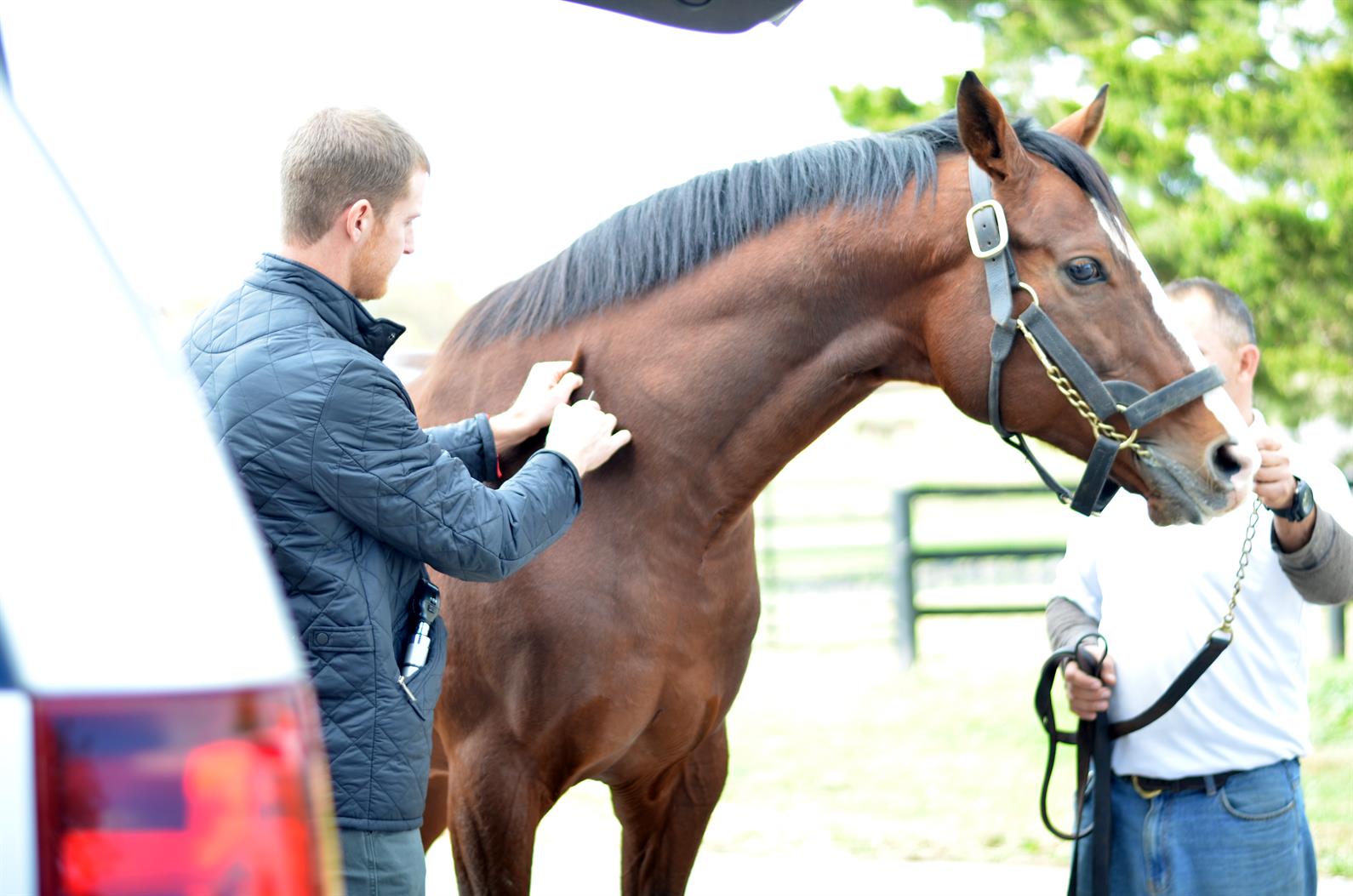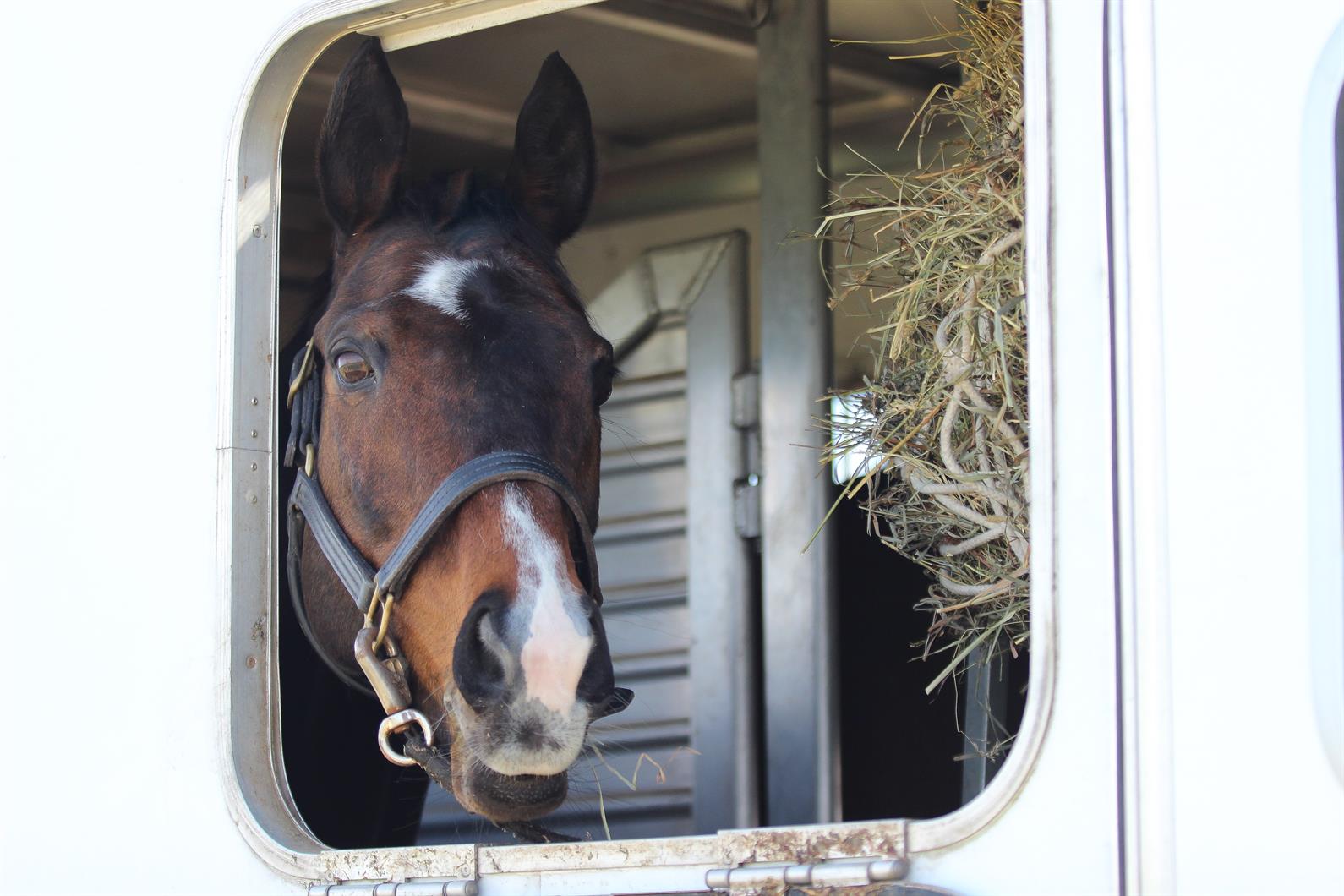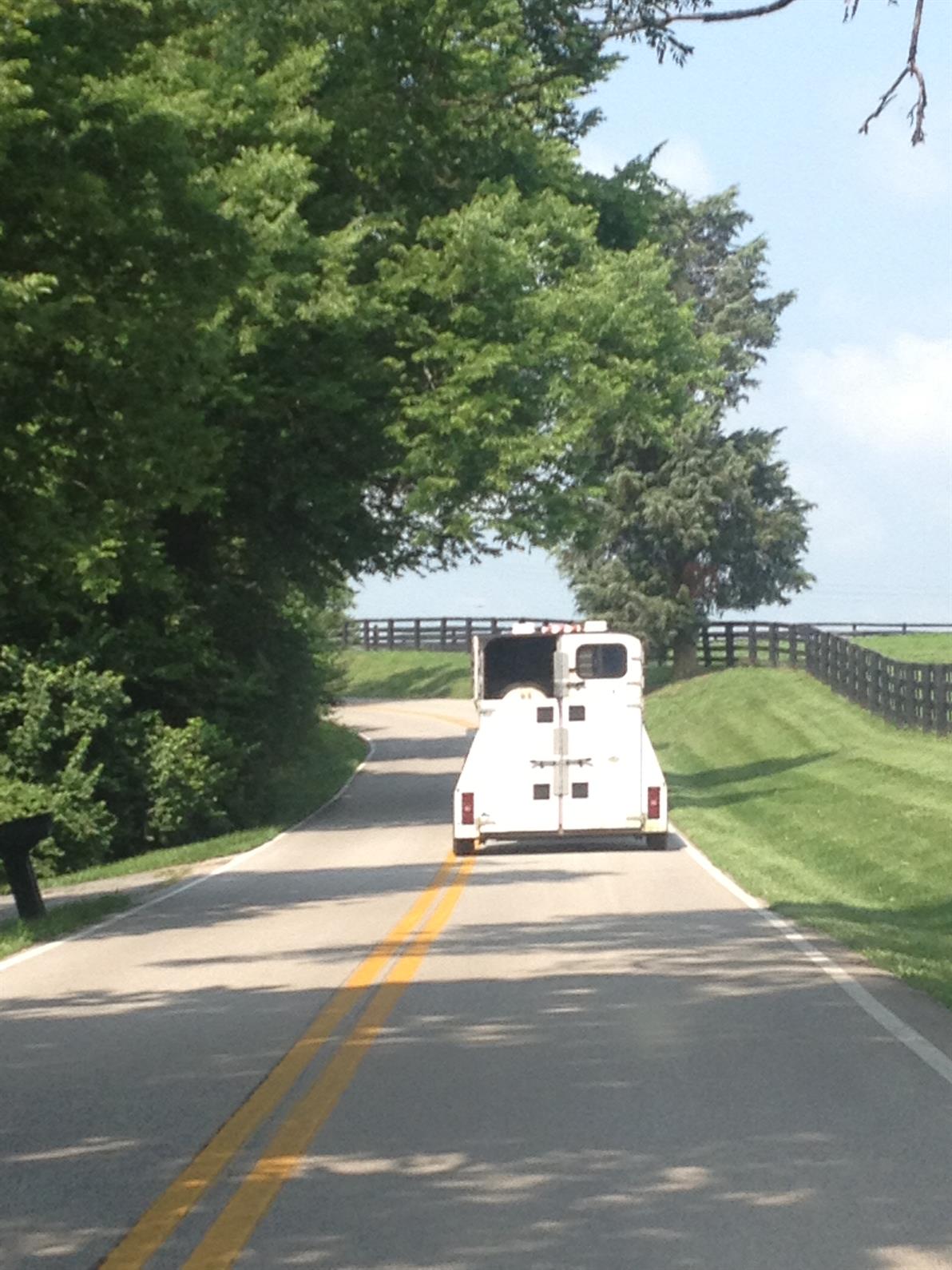Keeping competition horses healthy before, during, and after transport is key to show-ring success. Whether you’re shipping a competition horse across the city or across the nation, it’s important to do everything possible to ensure he arrives on show grounds in the best possible shape. While many preparations are dependent on the individual animal, some are consistent no matter the breed of horse or the discipline in which he is competing.
Vaccines
One of the best ways to keep a competition horse in tip-top shape is to make sure his health is as protected as possible. Following vaccination guidelines set forth by the American Association of Equine Practitioners (AAEP) and those recommended by the horse’s attending veterinarian will give him the best shot at not falling ill during transport or while at a competition. The AAEP guidelines coincide with United States Equestrian Federation regulations for this reason.

Photo: Courtesy of Hagyard Equine Medical Institute
Two important vaccines are the equine herpesvirus (EHV) and the equine influenza virus (EIV) vaccines, says Dr. Olivia Rudolphi of Rudolphi Veterinary Service, Ltd., in Wendelin, Ill. A three-star Fédération Equestre Internationale endurance veterinarian and chair of the veterinary selection panel for the United States Endurance Team, Rudolphi said, “It’s important to follow the correct original vaccine series and then booster of every six months.”
If the planned travel is out of state, it’s worth checking the destination state veterinarian’s website to see what vaccines they suggest for their area.
Also worth investigating: the strangles vaccine, says Dr. Martha Rodgers, owner of Shephard Hill Equine in Lexington, Ky. Strangles is a contagious bacterial disease that affects the respiratory tract of horses and causes swelling of the lymph nodes. It can sideline a competition horse for multiple weeks, potentially derailing qualification for year-end competition.
Dr. Liz J. Barrett, sport horse and surgery associate at Hagyard Equine Medical Institute, reminds those who show, “It’s most important to ensure your horse is current [on vaccines] at least two weeks before travelling. EHV/EIV as recommended by USEF [every six months] are probably the vaccinations most important to help prevent horse-to-horse transmission at a high-volume show,” Barrett said. “Rabies is probably most important from a human safety perspective.”
Dietary Considerations
Because transport can be hard on horses, it’s important to keep as many things the same as possible before a horse travels. If changes are warranted, however, it’s important that they be done slowly to minimize the potential for gastric upset or colic. For example, if a horse is making a multi-day trip or will be flying to his destination, Rudolphi will occasionally limit or decrease any high-energy or carbohydrate feeds, as it can affect muscular and gastrointestinal health.

While both vets agree that the introduction of pre/probiotics or other nutraceutical supplements before travel depends on the individual horse’s needs, Rudolphi insists you should not change or administer anything right before travel, to reduce the risk of adverse reactions.
Hydration
Hydration is crucial to a horse arriving at his destination healthy and in show shape.
“Hydration is key for any horse undergoing transport, prior to departure, during transit and upon arrival,” explained Rodgers. “A concentrated electrolyte paste has been shown to help increase thirst in horses and would be helpful to administer the day before leaving and again upon arrival.”
Regular Rest
Transportation concerns largely depend on the individual animal. Some horses are old pros at travel, while some of the most-seasoned show horses still get anxious when it comes time to load. Whether or a not a horse shows it outwardly, transport is innately somewhat stressful for the animal. Knowing your horse well is key to easy transport and transition to the show grounds.

Whether the horse wears bandages and the direction the horse faces during travel are all personal preferences. What is non-negotiable for traveling horses is that they have access to water and the ability to rest for a minimum of 30 minutes every six to eight hours. During this downtime, horses should be checked for signs of stress, overheating, and gastric discomfort. The ability to put eyes on the horse before it arrives at its destination can help stave off potential complications once he arrives.
Upon Arrival
Once the horse arrives on show grounds, he may need a few hours, or even a few days, to acclimate to his temporary home away from home.
“It’s really important for people to know what’s normal for their horse, like how many piles of manure are normal, how many buckets of water they typically drink, do they lie down at night or during the day, how much and where do they normally sweat—things like that,” explained Barrett. “Then, if you see your horse doing something outside of that normal, like not attacking the hay as soon as it’s put in the stall or not finishing grain, you can contact the show veterinarian.”
It’s not always possible to ship in days before an event, but the longer the competition or the more physically taxing the event, the more beneficial it is for the horse to have a few days to transition to the environment and recover from shipping, advises Rudolphi.
The area of the country the horse has shipped to should also be taken into consideration. If he’s traveled to a place where there is more heat and humidity than he’s used to, or if he’s going to show in an environment with a significantly different altitude from his home base, he might need more time to settle in.
“Altitude and heat index (heat and humidity) are the factors that most often would impact a horse’s ability to perform,” Rodgers said. “Signs of heat stress in an area with a high heat index [like the Deep South] might include excessive sweating or minimal sweating, muscle weakness or ataxia (lack of coordination), decreased drive to drink , increased respiratory rate, and lack of normal energy.”
Ample time, typically between one and three days, can help horses adjust to changes and allow them to perform at their best.
Stay Up-To-Date on Diseases
While a horse’s attending veterinarian is the first line of defense in keeping him safe during travel, it’s important that owners and trainers also stay up-to-date on equine disease outbreaks and adjust their competition plans accordingly. If your horse is traveling out of state, contact the state veterinarian’s office in his destination state to find out about potential issues as well as health-certificate policies. Here are other resources that can help:
Equine Disease Communication Center
The Equine Disease Communication Center monitors disease outbreaks, offers disease and vaccination information, provides biosecurity information, and links to all of the state veterinary offices.
US Department of Agriculture
The United States Department of Agriculture’s Animal and Plant Health Inspection Service offers a wealth of export and import information, and their Animal Disease Information page can be sorted by species. To find it, click the Animal Health link in the menu on the left side of the home page.
USRider
USRider News and Safety Bulletins are also a handy way to stay up-to-date on the latest issues and outbreaks.
Want more articles like this delivered to your inbox every week? Sign up here to receive our free Equestrian Weekly newsletter.
This article first appeared in US Equestrian magazine and may only be shared via social media. It is not to be repurposed or used on any other website aside from USequestrian.org.


